A Conversation with Mountain Rose Herbs
The Mountain Rose Herbs (MRH) Zero Waste program is an impressive combination of leadership, innovation, and perseverance. In 2016, they became the first company in Oregon to receive TRUE Zero Waste facility certification, achieving Platinum, the highest-level certification. Every department, from the office to the warehouse to the production floor collects each piece of discarded material to evaluate for reuse, recycling, or composting.
According to Alyssa Bascue, Director of Sustainability, MRH recycles and composts over 335,000 lbs. of materials every year. They produce around 17,000 lbs. of trash a year which is less than the trash produced by eleven Americans in a year which is an incredibly impressive amount. I spoke with Alyssa about the certification process, the challenges, and the lessons they have learned. Below are highlights of our conversation.
Overview of Waste Management Plan
Eliminating waste begins with rethinking and redesigning MRH’s operational procedures so that they only use what they need. They work to reduce what is purchased, which means working with upstream suppliers, reusing materials with community partners, reducing waste within the facility, and composting all organic materials.
Why did you decide to focus on waste and how did you approach it?
Reducing the negative environmental impacts of doing business has always been important to MRH. In 2007, they created a Zero Waste policy and instructed employees to do everything possible to keep materials out of the landfill. At that time, they emptied two dumpsters four to five times a month. After instituting the policy, they began to empty one dumpster twice a month.
Over the next 10 years, the company quadrupled in number of employees, emphasizing the clear need for more procedures and oversight. In 2016, Shawn Donnille and Julie Bailey, the owners of MRH, tasked Alyssa with pursuing zero waste certification.[1] She began by getting advice from other businesses that were zero waste certified. MRH had been tracking their waste since their first Sustainability Report in 2012, which provided baseline data. This data was essential to learn the quantities and kinds of materials they were dealing throughout their operation.
Journey to Certification
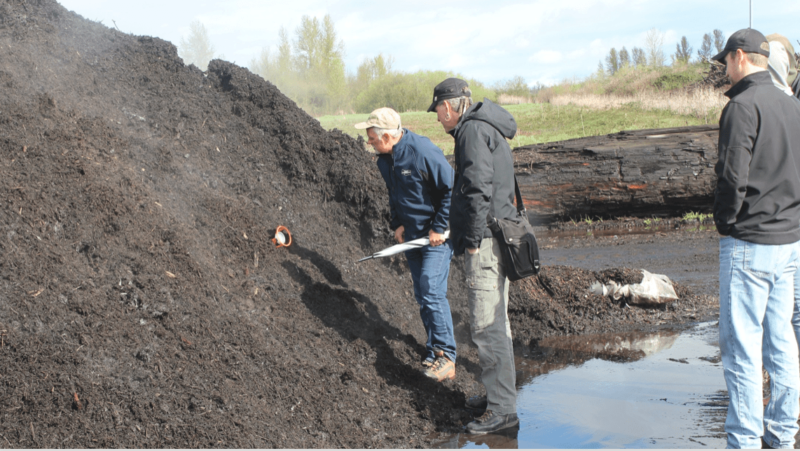
Staff members toured Rexius, their local commercial composting facility, to further understand their composting process.
MRH submitted an application for zero waste certification in 2016. They submitted the scorecard six months later. The scorecard asked for quantitative data like the weight of different materials that are recycled, composted, or thrown out. It also asks for qualitative information on how the company has responded to different issues.
The certification is extremely thorough and includes detailed questions and associated points on a range of categories including: redesign, reduce, reuse, compost, recycle, reporting, diversion, purchasing, leadership, training, analysis, upstream management, hazardous waste prevention, closed loop system, and innovation.
One month later, they held the on-site audit. The executive director and one board member came to tour the facility and interview three employees from different departments at different levels of management. “Having an impartial view of our zero waste program was invaluable to the certification process,” Alyssa commented.
Three months later, MRH was approved for the highest level of TRUE Zero Waste facility certification, Platinum, for meeting all local, state and federal waste regulations and diverting at least 90 percent of all waste from landfills and incineration. When they announced their new certification, they received an overwhelmingly positive response from their customers and vendors. Unlike some nuanced environmental issues that MRH is involved in that their customers aren’t familiar with, people know the term zero waste. It’s recognizable.
All in all, the certification process took about 10 months but could be done faster. To maintain the certification, they annually submit waste data and a summary of any significant changes to their zero waste program.
Ongoing Practices to Keep Waste Out of the Landfill
- Evaluate all discarded material for its potential to be recycled, composted, or reused.
- Collect all unusable essential oils and carrier oils to be salvaged for biodiesel.
- Ensure all styrofoam is reclaimed, reused, or recycled.
- Take all broken and unused electronics to a local facility for proper restoration or recycling (MRH encourages employees to bring in their old electronics to help keep their homes waste-free, and to keep e-waste out of the landfill).
- Send all unused botanicals to be composted at a commercial composting facility or picked up by local farmers and nurseries who use the herbs to make their own compost.
Ongoing Education and Audits
- Encourage employees to take the locally offered nine-week course to become a Master Recycler. Know what materials are in your waste streams, and then reach out to businesses who might need them. Creative staff members have been willing to call nonprofit recycling agencies, City of Eugene, and Lane Co. Waste Management to find places where MRH’s waste can be reused. For example, they were throwing away a lot of twist ties, so an employee contacted a nonprofit craft store who were thrilled to take them. MRH staff began cleaning, drying, and transporting the twist ties. Although this was additional work, the reward was knowing that an effort was made to keep the material out of the landfill. In some cases, people now reach out to MRH for things like packing peanuts and other shipping materials.
- Every two years, MRH uses a third-party auditor to conduct a trash audit of everything that is picked up by our trash hauler. Those numbers are used to estimate the weight of monthly trash and commingle (mix of paper, cardboard, aluminum cans, and some plastic) materials.
- Audit vendors/haulers and tour facilities when possible. MRH toured the local commercial composting facility and heard from knowledgeable staff about why they didn’t want compostable bags, cups, and flatware. It slows down the entire process. So, MRH started educating staff and having them throw away compostable plates, etc.
Environmentally Friendly Packaging
As a result of the certification process, MRH created an Environmentally Preferable Packaging Policy (for both herb vendors and non-herb vendors) broken down by department, like procurement, purchasing, marketing, and operations. This document identifies top-tier companies to purchase from in each department; a “No Buy” list of products and vendors (companies MRH doesn’t want to support because of their environmental or labor practices); guidelines for preferred packaging (minimize use of virgin materials, maximize post-consumer recycled content without compromising quality and strength).
What were some of the challenges of the certification process and what are ongoing challenges?
Going through the process of becoming zero waste certified was extremely rewarding for the company. Once they made it a priority and devoted time to gathering information, there were no roadblocks. For those just starting out, it can be challenging to write a policy, create a tracking system, and allocate staff time to record and report annual diversion rates.
-
Communication
Communicating with trash haulers is an ongoing challenge. MRH worked with a third-party auditor, a nonprofit in Eugene that provides consultations, including trash audits for businesses and organizations. They came on-site for a half day to sort and weigh MRH’s trash and recycling. MRH’s trash hauler had assured them that the label backing was being recycled, but through the audit MRH discovered that in fact, it was not. Not only that, if backings were in the recycling, the whole load was considered contaminated and ended up going to the landfill. And so, of the 438 pounds of trash and recycling, 105 pounds were label backing, which now needed to go in the trash dumpster.
A big takeaway for Alyssa was that you can’t take what trash haulers say at face value. As their customer, haulers will often tell you what you want to hear. You must communicate your zero waste policy and do your own research.
-
Education
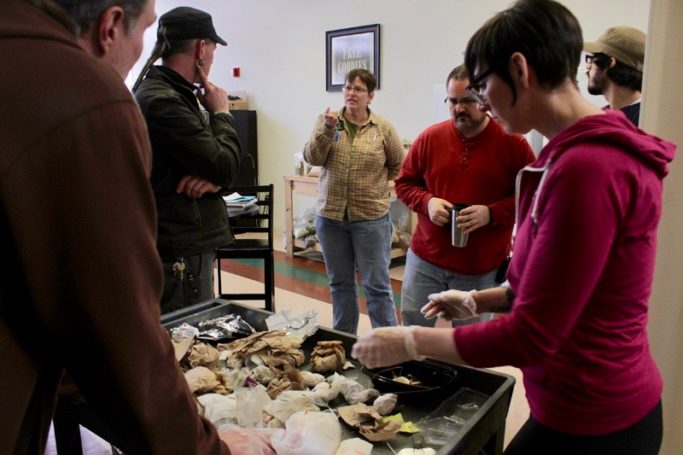
They top-‐sort daily and analyze waste regularly by weight. The Green Team and employees both help to analyze and identify problems within the waste stream.
Another challenge is employee education. With the labels, MRH needed to train their employees to place label backing in the trash bin, and not the recycling bin. It took six months to get people on board because they used to think the material was recyclable. Employees wanted it to be recyclable, but “wishful recycling” only contaminates recycling streams. So they focused on staff education around how to properly sort materials.
They used the information from the audit to redesign practices. For example, MRH used to have six people printing labels. Once they found that the labels were not being recyclable, they dug deeper and discovered misprints caused a lot of label waste. So they trained fewer people to print labels, which has since decreased the waste from misprinting.
-
Mis-sorting
The biggest mis-sorting happens in the break room. It’s pretty easy to train people to sort properly in their departments, because they handle the same kinds of materials every day. Food packaging is a whole other story. MRH doesn’t have control over what staff bring in to eat, but they still must deal with the waste. For example, yogurt containers were previously put in recycling until China stopped taking dirty US plastic recycling.
“Our staff is pretty eco-conscious,” Alyssa said. “Even so, having 12 different bins in the break room can be intimidating. We use images and physical examples taped to the bin to help. But it is still a challenge and takes constant education.”
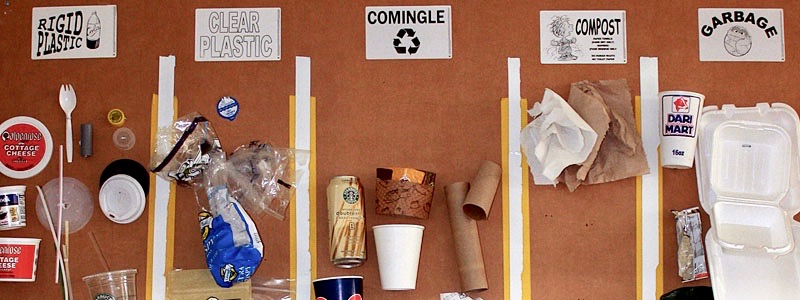
Every department has clearly labeled recycling containers with instructional words and images. The recycling guide in the break room includes physical examples of common materials for easy sorting.
Ongoing Education
A big part of Alyssa’s responsibility is ongoing staff education and outreach. She has implemented the following:
- Sustainability trainings. After an employee has been at MRH for 30 days, they take part in an in-depth zero waste and sustainability training.
- Green team. The green team is a small committee with an eye on sustainability which is invaluable. There are roughly 230 employees and seven different facilities at MRH. The green team includes members in different departments who can be a resource to answer questions, and provide feedback from staff at monthly meetings.
- Other education. Employee newsletters go out with paystubs quarterly. An intranet lets employees share information at work. And an open-door policy ensures people can go directly to Alyssa with suggestions and concerns.
What are some of your key takeaways?
“I’m often asked by companies, especially small ones whether they can be zero waste,” Alyssa continued. “I tell them yes, but it is important to recognize that it requires an investment. I don’t want to scare them away, obviously, but it is important to be realistic. And then I start the conversation by talking about the low hanging fruit so they can get started. My main takeaway is that zero waste is a goal you are working towards, and that every little bit counts. You just have to pull off the Band-Aid and begin the journey.”
MRH had fewer staff when serious initiatives began. Things like employee education were much easier with 30 or 50 employees compared to 200. So, Alyssa recommends companies start when they are small.
Alyssa ended our conversation by saying, “We only have one planet Earth, and we’re all in this together. Sharing zero waste knowledge and resources is absolutely essential. I think it’s important to be optimistic and have a positive attitude. Pursuing zero waste is not easy and it’s not cheap, but it is the right thing to do.”
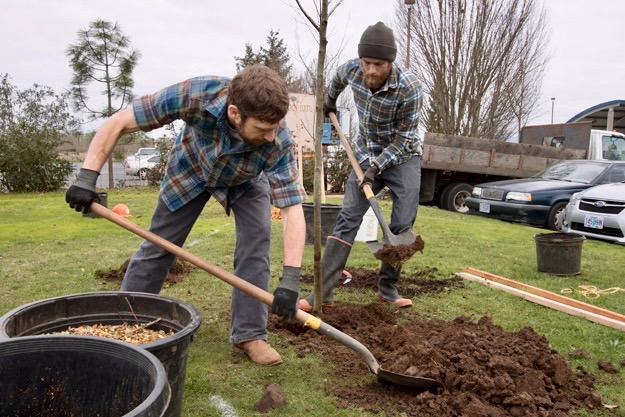
In 2015, sick trees were removed, chipped, and tree mulch was reused on-‐site during an employee volunteer tree planting.
For more information, contact: Alyssa Bascue [email protected]
And for background information on the Mountain Rose Herbs Zero Waste program see:
- Zero Waste
- MRH blogs: We’re Zero Waste Certified, How to Be a Master Recycler, How We Do Zero Waste.
- How We Do Sustainability at Mountain Rose – a video on MRH’s overall approach to sustainability with a focus on their Zero Waste program.
For more information on the TRUE Zero Waste certification program, including resources for becoming certified, see TRUE Zero Waste.
[1] This certification used to be managed by the US Zero Waste Business Council and is now managed by Green Business Certification, Inc.

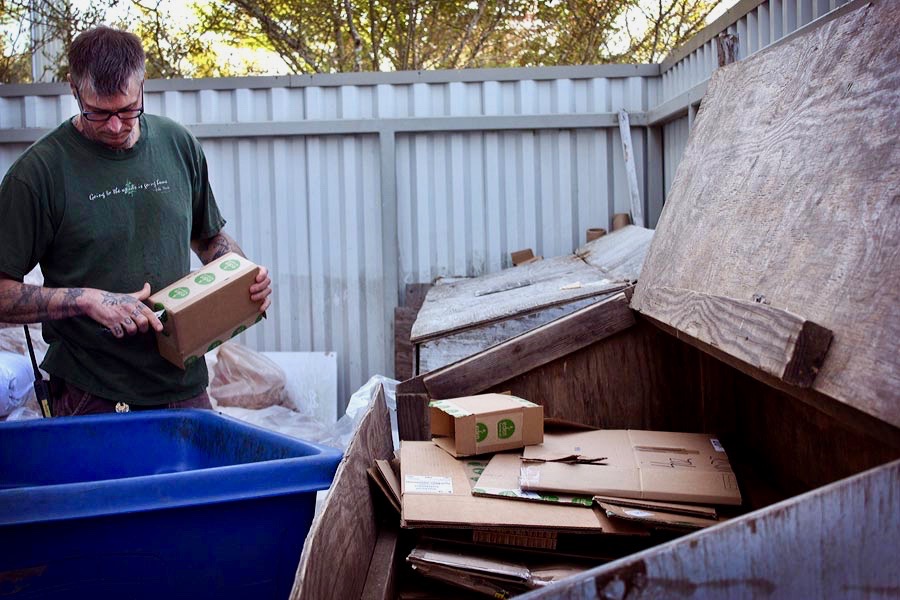
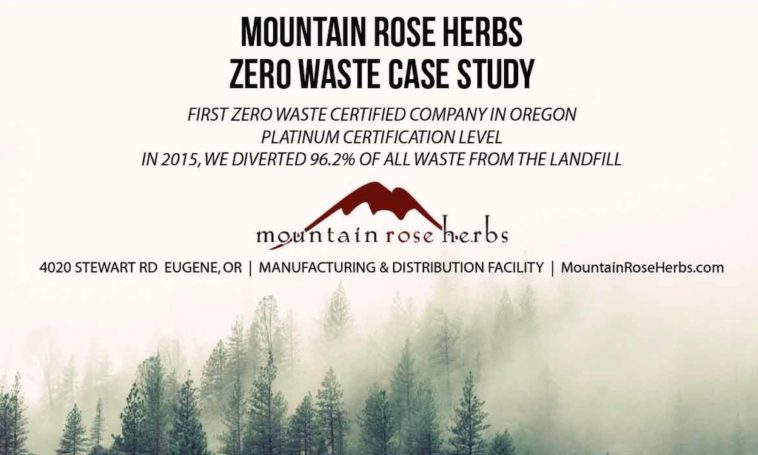
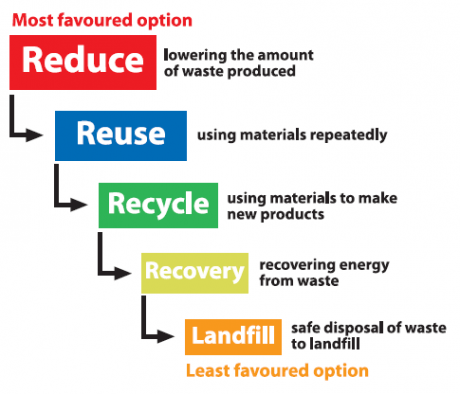
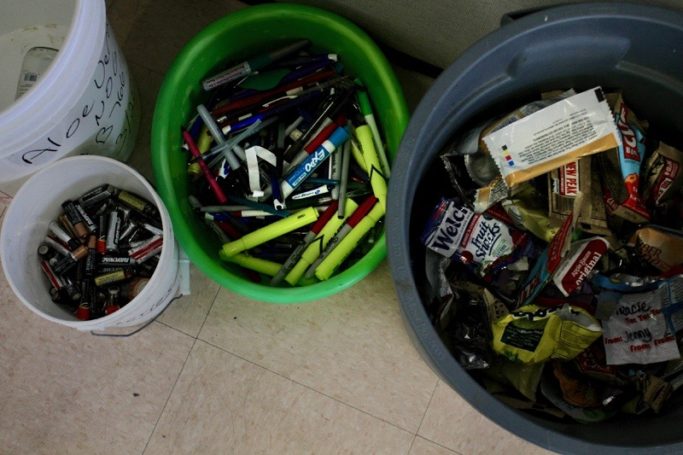
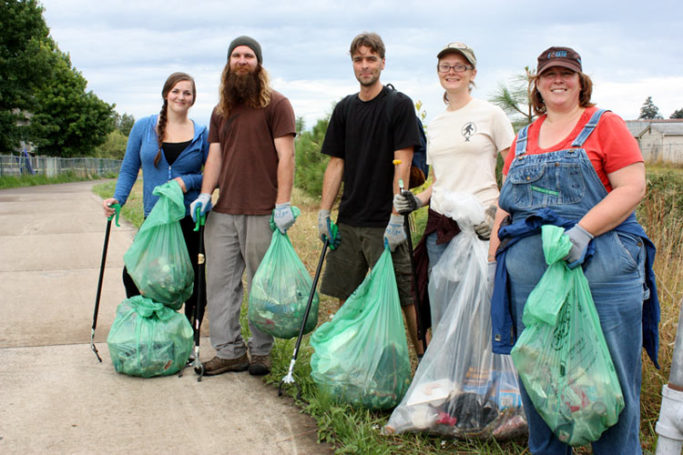
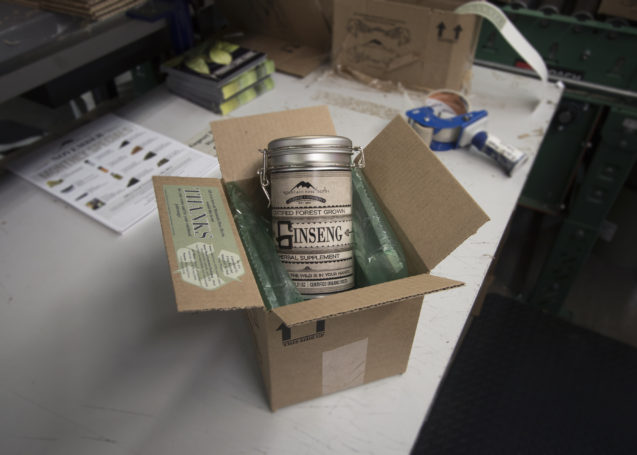
Comments